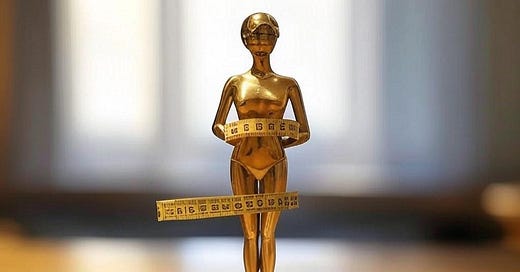And the Award Goes to … Ozempic
The Golden Globes commercials were kinda bonkers. Plus: Extreme fitness trends, thin is (back?) in, misleading headlines, and more wellness news.
Updates:
I shared some thoughts with The Guardian on new extreme fitness trends—and how they exemplify what we refuse to admit: that the body positivity movement had limited success. (Eh, did you catch the red carpet?)
“It’s like how people are shocked that skinny is back in—they’re like: ‘but we have all these Dove commercials!’ But people are still people...”
The Guardian: Yet another extreme exercise fad for women
Also, if you’re in LA, come to Book Soup on January 14th! I’ll be talking with Adam Chandler, author of the new book 99% Perspiration.
Keep reading with a 7-day free trial
Subscribe to Well To Do to keep reading this post and get 7 days of free access to the full post archives.



